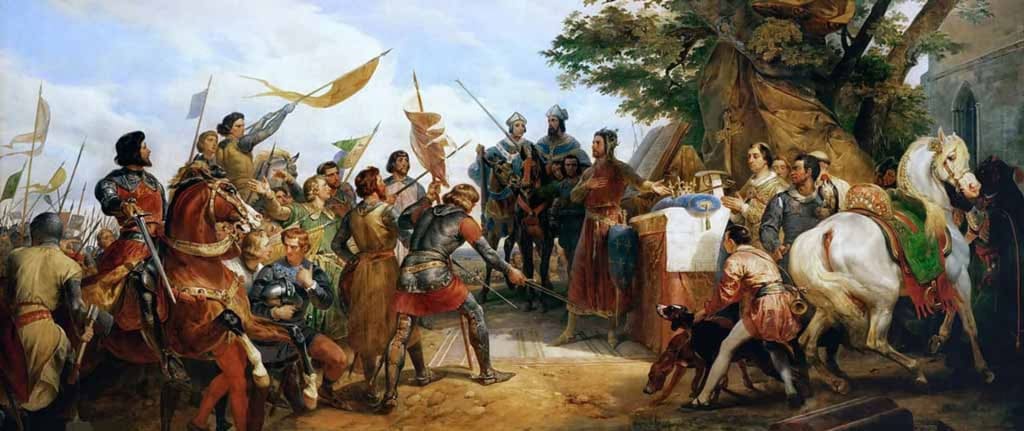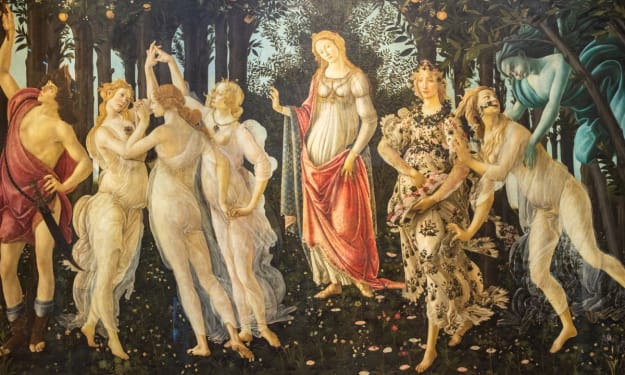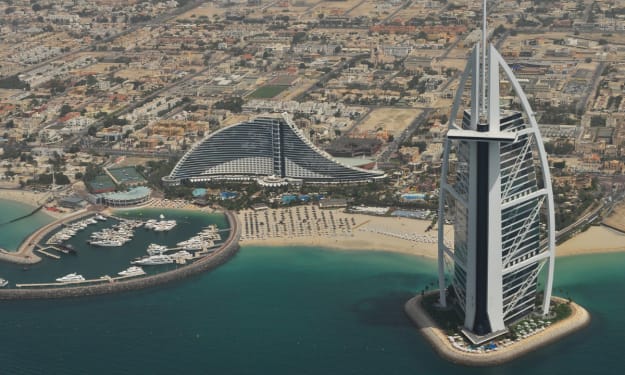"The Kingdoms' Reckoning: Wars of the Medieval Ages"
Battles, Bloodlines, and the Evolution of Empires

In history, the Medieval Ages stand as a tumultuous period marked by the clash of swords, the reverberations of armor, and the echoes of kingdoms reckoning with the inexorable forces of war. Spanning from the 5th to the 15th century, this epoch witnessed a series of conflicts that shaped the destinies of empires, heralding both the rise and fall of kingdoms in Europe and beyond.
The Medieval Ages were characterized by a complex web of feudal systems, where kings, lords, and knights held dominion over vast territories. The quest for power, land, and influence fueled incessant warfare as rivalries flared, borders shifted, and alliances formed and disintegrated like shifting sands.
One of the defining conflicts of the Medieval Ages was the Hundred Years' War (1337–1453) between England and France. Fueled by territorial disputes and claims to the French throne, this protracted struggle witnessed iconic battles such as Crécy, Poitiers, and the infamous Siege of Orléans. The advent of the longbow, a technological innovation that revolutionized warfare, played a pivotal role in the English successes during this prolonged conflict.
Simultaneously, the Reconquista unfolded on the Iberian Peninsula as Christian kingdoms sought to reclaim territories from Islamic rule. The Battle of Las Navas de Tolosa in 1212 marked a significant turning point, leading to the gradual reconquest of Spain by Christian forces. The Reconquista ultimately culminated in the fall of Granada in 1492, signaling the end of Muslim rule on the Iberian Peninsula.
In Eastern Europe, the Teutonic Knights clashed with pagans in the Baltic region, seeking to expand Christianity. The Battle of Grunwald in 1410 witnessed a coalition of Polish and Lithuanian forces decisively defeating the Teutonic Order, altering the balance of power in the region.
The Wars of the Roses (1455–1487) in England epitomized the dynastic struggles that plagued the Medieval Ages. The Houses of York and Lancaster vied for the English throne, plunging the kingdom into a series of bloody conflicts. The Battle of Bosworth Field in 1485 marked the end of this dynastic turmoil, with Henry Tudor emerging victorious and ascending to the throne as Henry VII.
The Medieval Ages were also marred by external threats, exemplified by the Mongol invasions that swept through Eastern Europe and the Middle East. Led by formidable leaders such as Genghis Khan and his successors, the Mongols created an empire that spanned from Asia to Eastern Europe, leaving devastation in their wake.
Amid the chaos of war, the medieval battlefield became a theater of chivalry, where knights adorned in armor and bearing heraldic symbols clashed in a dance of honor and brutality. However, the harsh realities of warfare often belied the romanticized ideals of chivalry, as sieges, raids, and skirmishes took their toll on both combatants and civilians alike.
The Medieval Ages also bore witness to the advent of iconic fortifications such as castles and fortified cities. These structures, often strategically positioned atop hills or surrounded by moats, served as bastions of defense against invading forces. The imposing silhouette of castles like Carcassonne and Dover Castle became emblematic of an era where territorial control hinged on the strength of stone walls and the might of garrisons.
As the Medieval Ages drew to a close, the reverberations of war lingered in the collective memory of societies. The scars of conflicts endured, shaping the geopolitical landscape of Europe and influencing the trajectory of subsequent historical epochs.
In reflecting on the kingdoms' reckoning during the Medieval Ages, we find a complex tapestry woven with threads of conquest, resistance, and transformation. The clash of arms and the shifting tides of power not only defined the contours of medieval geopolitics but also laid the foundation for the emergence of modern nation-states. The wars of the Medieval Ages, with their brutal realities and enduring legacies, stand as a testament to the resilience of human societies in the face of adversity and the intricate dance of power that has shaped the course of history.
About the Creator
Andrew
I collect whispers of dreams and spin them into tales. Let me unlock the doors of your imagination. Come, turn the pages and wander through the worlds I weave.
Enjoyed the story? Support the Creator.
Subscribe for free to receive all their stories in your feed. You could also pledge your support or give them a one-off tip, letting them know you appreciate their work.






Comments
There are no comments for this story
Be the first to respond and start the conversation.